Cover photo: credits @andresjuansuarez
Photos in the article taken from Via delle Palme’s Instagram page
The story
“We’ll lift it up and put in the potatoes… we won’t let the salt cod fool us…”: salt cod has never been as sacred as in the hands of Licia Cannarella, who speaks with confidence, moving her hands with a certainty that only years of experience can give. The soffritto, the “lo strattu,” the tomato sauce: everything has its time and its measure, taught naturally, without a clock or scales, following the instinct that guides the true “masters” of Sicilian cuisine. Watching and learning are Buccio Cappello and Giuliana Pucci, private chefs and sommeliers, a couple in life and work, who returned to Sicily after experiences in London to rediscover and preserve the flavors of their roots.
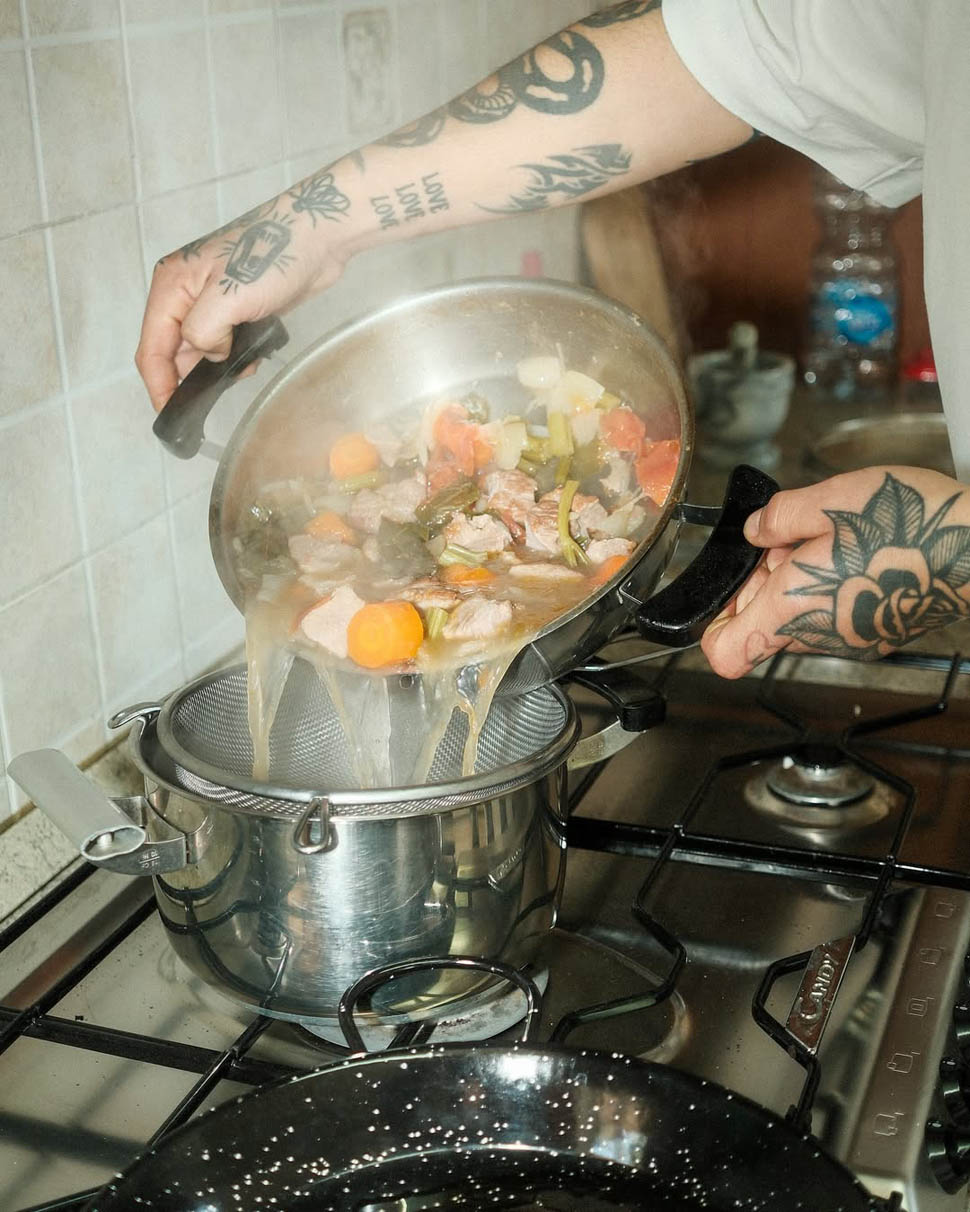
The project is called Via delle Palme, named after their base in Santa Maria del Focallo, but it is not just a name: it is a mission. Every day, between their work as private chefs and sommeliers and their activities in the area, Buccio and Giuliana travel through villages, countryside, and markets, literally knocking on grandmothers’ doors to cook together, collect recipes, and, above all, emotions. Each encounter becomes a small ritual of memory and conviviality, a living testimony to a culinary tradition that risks being lost in the era of gourmet fishmongers and ready meals. “I met them at a dessert fair,” says Felicia ‘Licia’ Cannarella, the grandmother from Portopalo di Capo Passero, on La Sicilia.it. “At first, when I saw them with all their tattoos, I said to myself, ‘Hmm’,” she laughs, and her laughter immediately dispels any mistrust. Then, between roasted olives and oranges freshly picked from the tree for a cake, their friendship grew stronger in front of the stove. Licia is just one of the many grandmothers that Buccio and Giuliana have contacted in their travels: each woman holds a wealth of knowledge, smells, and gestures that they want to share with those who are still willing to listen.
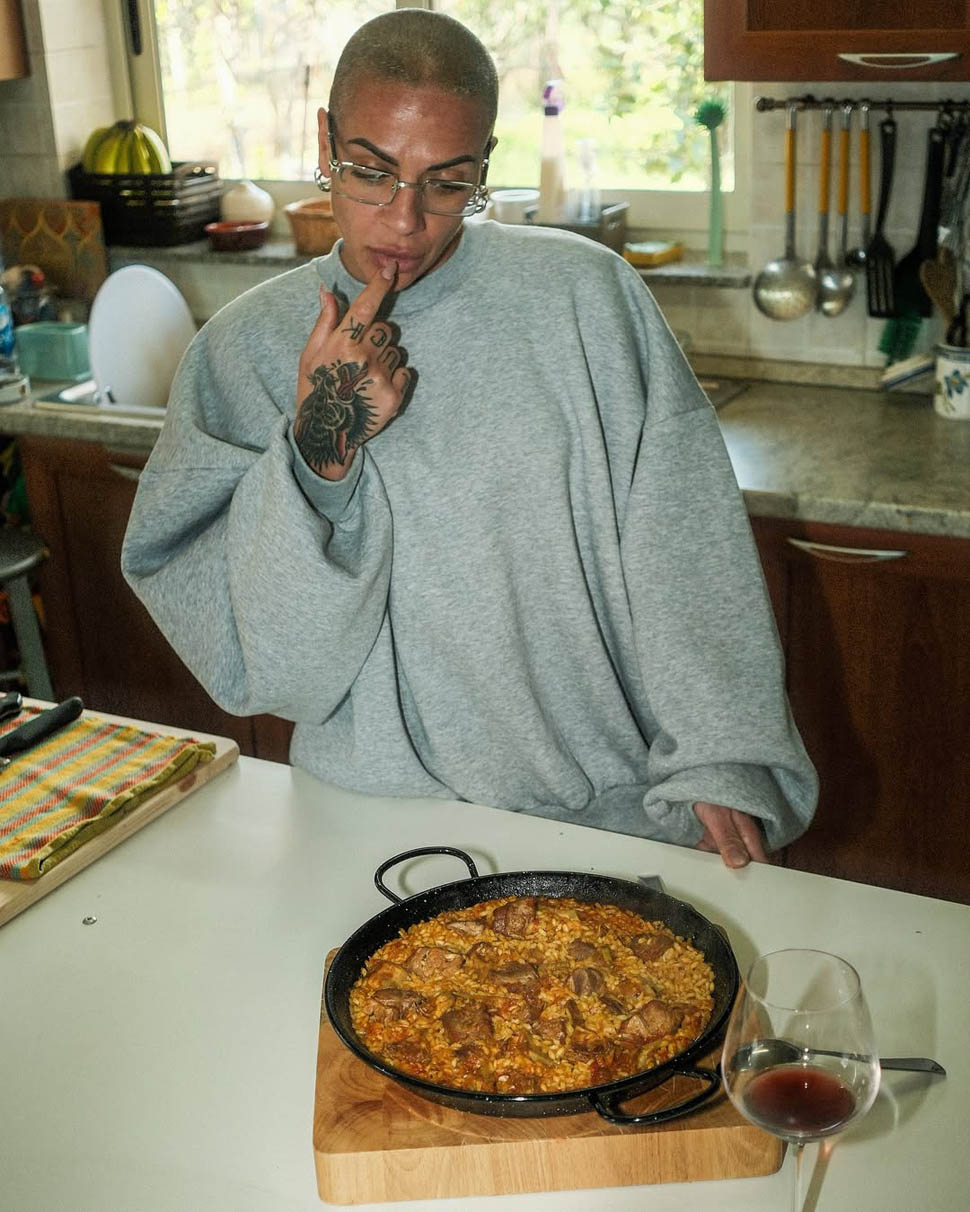
“It depends on the encounter,” explains Buccio, describing their almost anthropological methodology. “In Palazzolo Acreide, I saw a grandmother with a heavy shopping bag, we offered to help her, and that’s how it all started. ‘Ma’am, what are you cooking today? Can we come with you?’” Giuliana adds: “Other times, we are simply guided by the smell coming from the windows. At the supermarket, however, we need more patience: we introduce ourselves and explain what we do.” It’s not an immediate yes: “There’s always a little fear, then the ‘cuddle effect’ kicks in,” smiles Buccio, “we become the adopted grandchildren.” Giuliana observes: “During the preparation, relationships are established: they tell us anecdotes, dialect terms, and idioms. In the end, it’s natural to sit down at the table with them.” The process is both research and celebration: they call themselves “hunters and heirs.” “Hunters,” explains Giuliana, “because we go out to rediscover what seemed lost; heirs, because it is a heritage that is in danger of disappearing.”
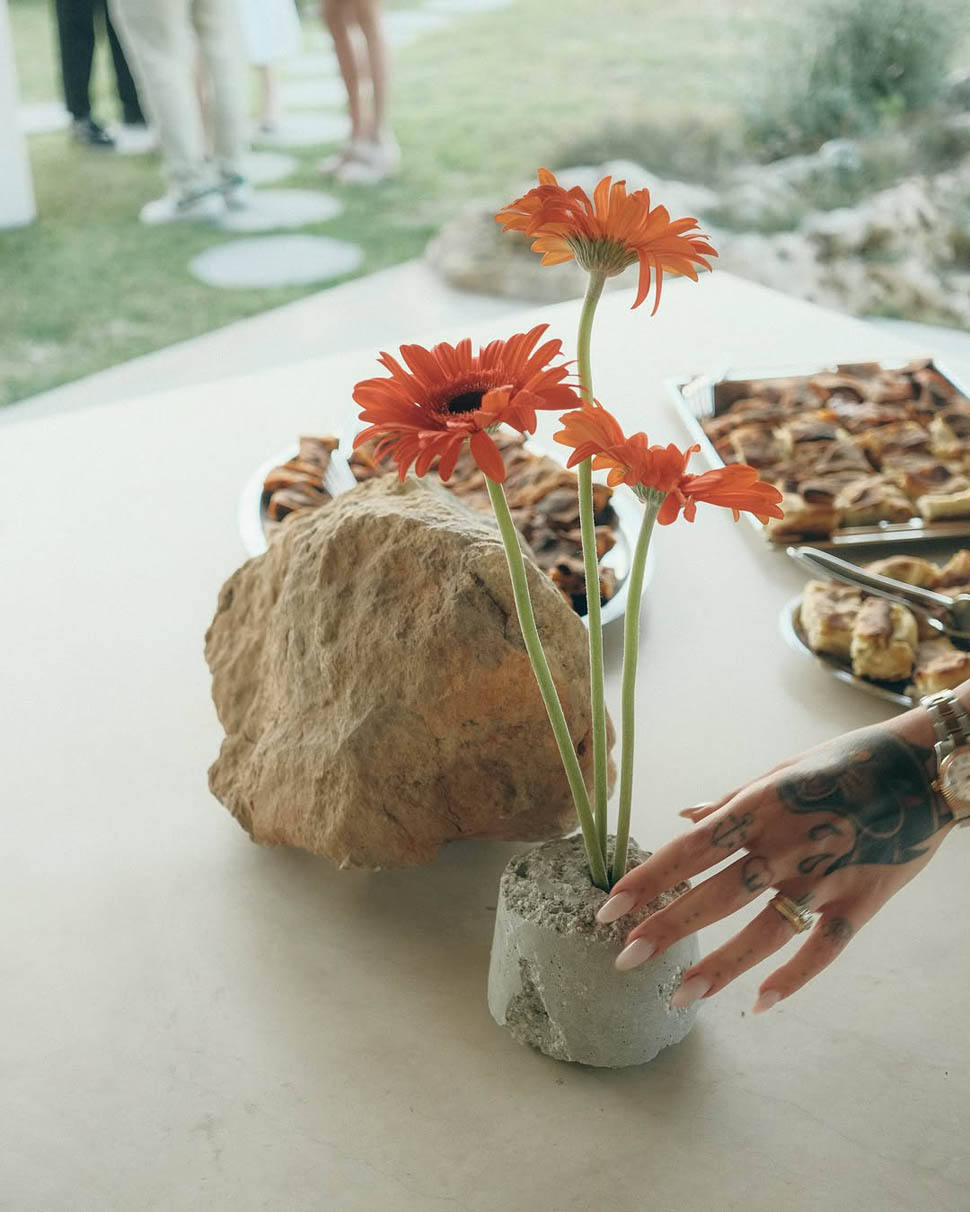
The call of Sicily did not come suddenly. After years in London—he as a chef, she in the fashion world—nostalgia became irresistible. Giuliana admits, “His need to return came before mine. When he told me, I wasn’t ready, so we waited two years.” Buccio confirms, “Every time my vacation ended, I was in crisis. I had fled, but once I returned, I couldn’t tear myself away. I watched my grandmother cook and saw the magic in her hands. Surrounded by Michelin-starred chefs, I thought to myself: these are the true masters.” Those hands don’t weigh, measure, or consult written recipes: they know, feel, and transform ingredients into community.
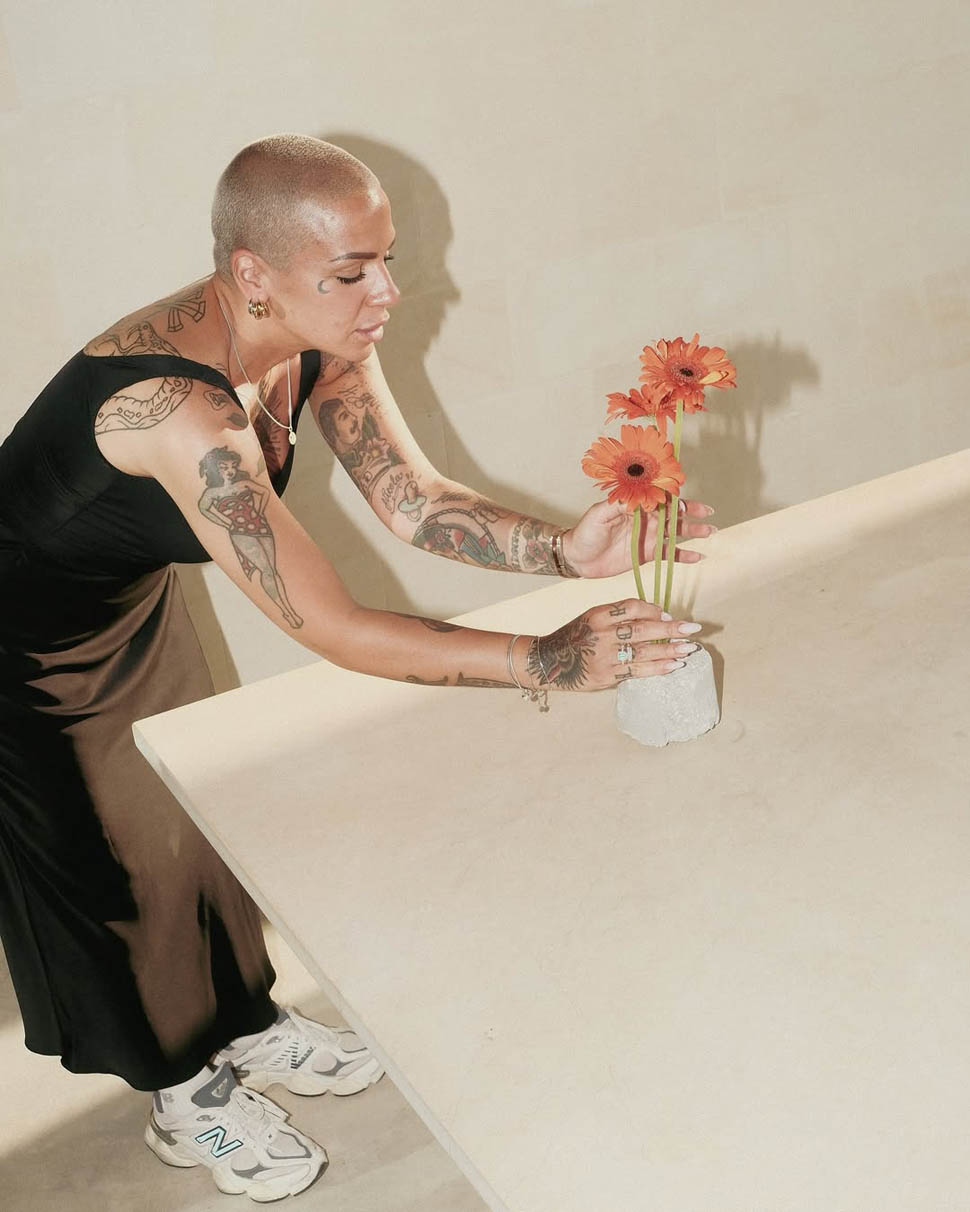
The grandmothers of the two protagonists shaped their relationship with food and conviviality. Buccio remembers his grandmother “Razietta” (Grazia), Giuliana remembers her grandfather Sal and grandmother Giovanna, but it is her grandfather who cooks the most, even building a brick brazier, the famous “’u casotto,” where every Sunday he roasts chicken for entire tables. Those tables, laden with pots brought by all the women in the family, were the scene of a complex harmony, made up of flavors and laughter, shared gestures and stories told while the food was cooking. There are scents that become memories: “Basil,” Buccio confesses, “almost makes me cry. It takes me back to my childhood, to the countryside, to my grandmother.“ Giuliana, on the other hand, chooses the scent of scacce in the oven: ”When you smell it, it means we are all together, that the family is reunited, that it is a day of celebration.” These are smells that transform food into suspended time, into memory, into connection, into roots.
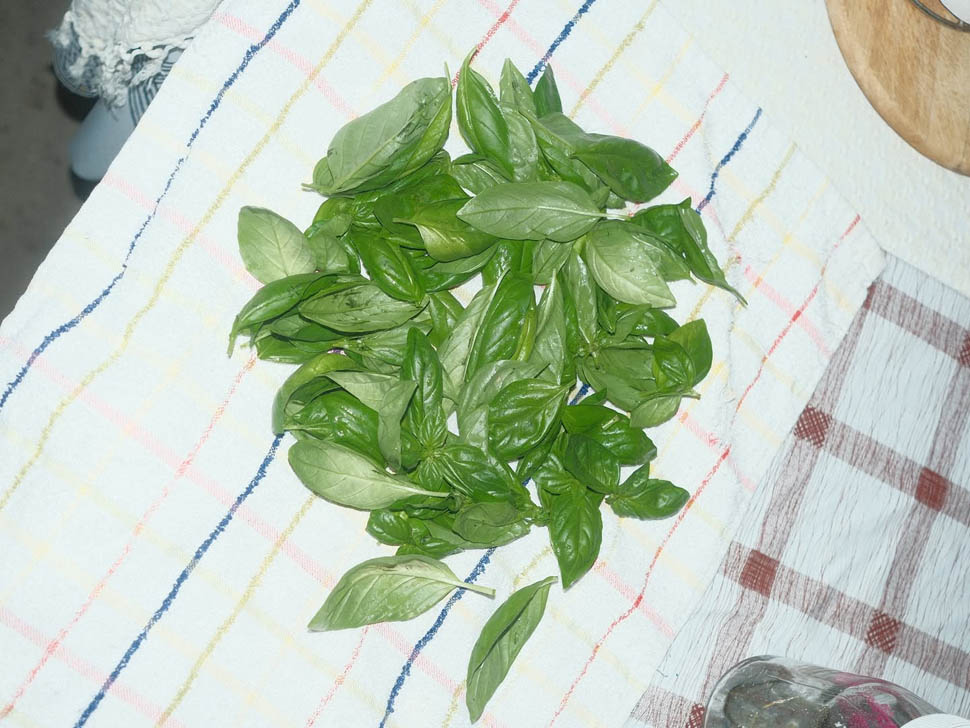
Despite their ancient traditions, Buccio and Giuliana do not shy away from modern tools: social media, videos, television broadcasts. But technology is only a means, not an end. Every morning begins with the vegetable garden, the wood-fired oven, and the care of the countryside built stone by stone in Via delle Palme. The routine is laborious but authentic, and authenticity is the key to conveying an uncompromising message. Their dream is not only professional, it is human. Tradition, memory, and authentic cuisine are thus blended with contemporary life: the heritage of their grandmothers is no longer confined to the home kitchen, but becomes a shared experience, a visual and gustatory narrative, an encounter between generations and cultures. Buccio and Giuliana have transformed nostalgia into a project, memory into a workshop, and the act of cooking into an act of civilization. With every piece of salt cod, every scaccia, every orange picked from the tree, they give Sicily back a piece of its truest soul. And they do so without artifice, with respect for time, flavor, and history.
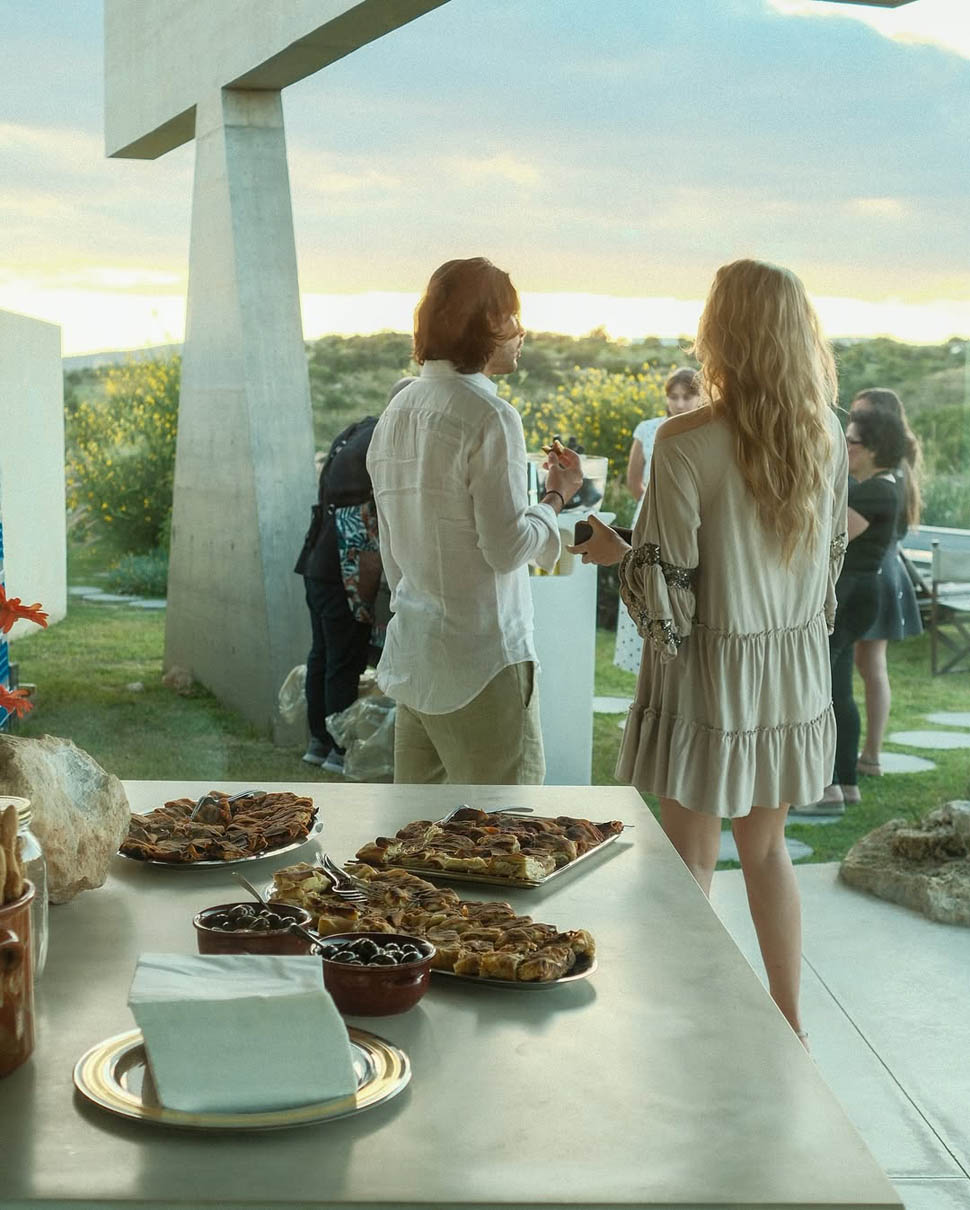

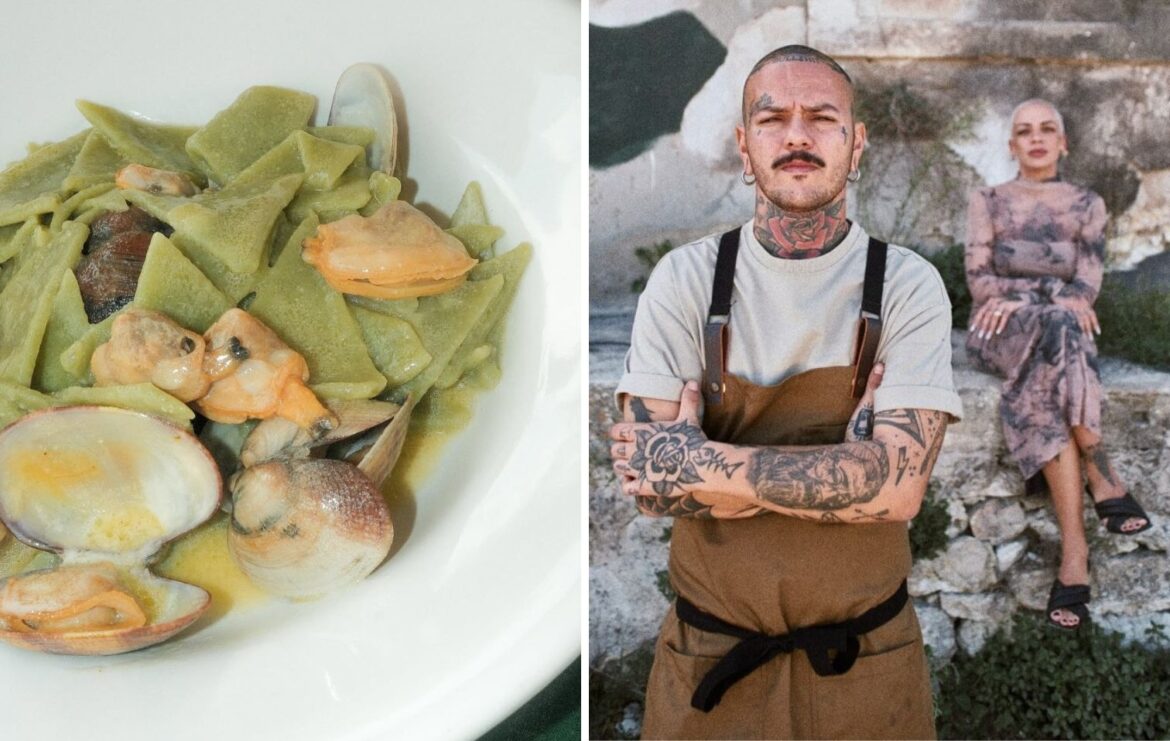
Dining and Cooking